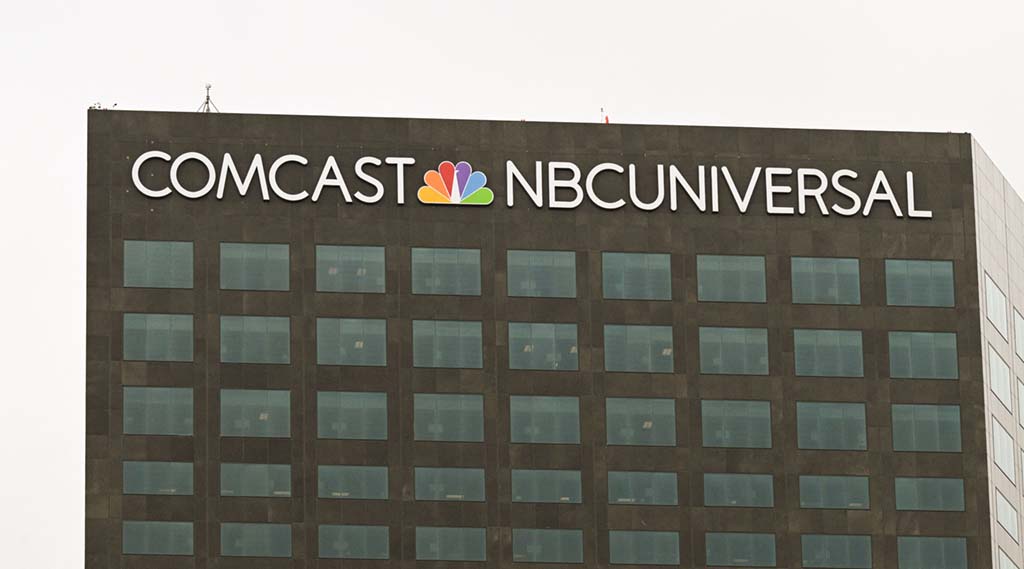Analyst: Viewing Declines at Comcast’s SpinCo Cable Networks Are ‘Catastrophic’
Rapidly shrinking audiences at NBCUniversal cable nets leaves them with ‘little negotiating leverage, not much of a story to tell advertisers,’ MoffetNathanson says

In a report on the cable networks Comcast plans to spin off into a new entity dubbed “SpinCo,” analyst firm MoffettNathanson Research described the channels’ rapidly declining viewing as “catastrophic.”
“A collection of networks with this viewership profile will have little negotiating leverage, not much of a story to tell advertisers and nothing indispensable to offer streaming services,” the report, issued Dec. 3, said.
But that doesn't mean the proposed tax-free spinoff of the NBCUniversal cable networks—including USA Network, MSNBC, CNBC, Golf Channel, Oxygen and E!—is a bad idea if it can spur consolidation in the declining cable programming business, which the report called “a welcome development.”
Comcast on Nov. 20 said it would spin off those cable networks and digital assets Fandango, Rotten Tomatoes, GolfNow and Sports Engine into SpinCo. Its NBCUniversal media unit would hold onto broadcasters NBC and Telemundo and their stations, streaming platform Peacock, cable network Bravo and the Universal studios and theme parks.
“To be fair, a careful look … reveals that the rate of decline in ratings has slowed of late; indeed, the last couple of years have been something close to stable, offering at least a ray of hope,” the analysts wrote. “And some of the assets are inherently relatively stable. Yes, all are suffering from falling viewership—cord-cutting makes that inevitable—but CNBC and Golf Channel, to cite the two most obvious examples, have reasonably strong and focused platforms and relatively high engagement (and both of these two have very attractive demographics). Others, however—USA in particular—are structurally weak. Thankfully, Comcast has indicated that SpinCo’s carriage agreements are all relatively recent.”
Those rapidly declining viewing trends indicated that the proposed spinoff is all “about consolidation,“ the report said. ”To that end, spinning off SpinCo will provide a market-derived valuation (once it starts trading) that can serve as the basis for more serious structural discussions that are grounded in reality rather than wishful thinking.”
MoffettNathanson also stressed that the spinoff isn’t a “prerequisite for deal-making; Comcast could have entered into deals while remaining consolidated if they had so desired … But the spin obviously makes deal-making more likely. That’s in part because it makes dealmaking easier. As a publicly traded company, SpinCo will have a market-derived valuation, making it much easier to arrive at mutually agreeable exchange ratios (one shouldn’t underestimate how much of an impediment inflated self-worth has been to transactions in the past).”
Get the TV Tech Newsletter
The professional video industry's #1 source for news, trends and product and tech information. Sign up below.
While the analysts stressed that “cable network consolidation through SpinCo is not imminent and unlikely to play out until at least 2026,” the report noted that industry executives have long discussed the need for consolidation and identified some likely scenarios.
“Warner Bros. Discovery’s large cable portfolio would make the most natural dancing partner for SpinCo, by a significant margin,” the report argued.
MoffettNathanson also argued that creating SpinCo isn’t a prelude to a merger of Comcast and fellow cable operator Charter Communications, and said the spinoff would improve the growth prospects for Comcast’s remaining assets.
“M&A will take a while to happen,” the report concluded. “[W]hile this will take time and will not be transformational to valuation, it is a welcome development.”
George Winslow is the senior content producer for TV Tech. He has written about the television, media and technology industries for nearly 30 years for such publications as Broadcasting & Cable, Multichannel News and TV Tech. Over the years, he has edited a number of magazines, including Multichannel News International and World Screen, and moderated panels at such major industry events as NAB and MIP TV. He has published two books and dozens of encyclopedia articles on such subjects as the media, New York City history and economics.

